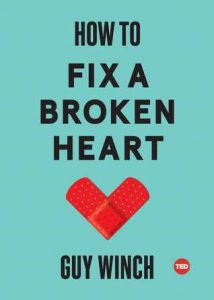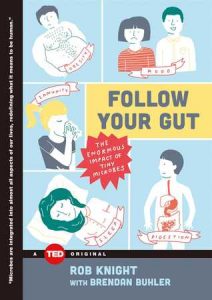 I’ve been making my way through some of the TED series books on my breaks (they’re a good size for a 15-minute slot – not that you can finish it in 15 minutes, but each chapter is short enough), and they’re quite a nice little series based on the corresponding talks. I haven’t chanced upon one that’s been life-changing yet, but they’re definitely charming little bites of information. I’ll have a list of all the current TED books, linked to the titles we have in our catalogue, below the cut.
I’ve been making my way through some of the TED series books on my breaks (they’re a good size for a 15-minute slot – not that you can finish it in 15 minutes, but each chapter is short enough), and they’re quite a nice little series based on the corresponding talks. I haven’t chanced upon one that’s been life-changing yet, but they’re definitely charming little bites of information. I’ll have a list of all the current TED books, linked to the titles we have in our catalogue, below the cut.
The one I started with was How to Fix a Broken Heart, which surprised me by addressing the overarching problem in dealing with a broken heart (when it falls outside of socially sanctioned heartbreak, i.e. when your significant other breaks up with you (outside of divorce or death), or when a pet dies): the structures simply aren’t in place to provide as much support for those who are undergoing heartbreak of this sort in comparison to the bereavement leave and understanding you get from coworkers & friends alike for more socially acceptable forms of heartbreak (e.g. death of immediate family or spouse, divorce). As a result, the brokenhearted are expected to pull themselves up by their bootstraps and get over it – without a support system, oftentimes facing exasperation or contempt from what would otherwise be their support system because why can’t they just get over it already??, while they’re already on low emotional resources.
Winch doesn’t just address the systemic issue. He provides solutions the heartbroken individual can use to heal better, following up with references to studies that support those solutions – because while time is a factor, what you do during that time also makes a difference. At the end of the book, you’ll feel a lot less guilty about how much it affects your functioning when your heart gets broken, especially because now you’ll know that people who are undergoing heartbreak have the same part of their brain activated in like fashion to people who are undergoing intense, almost unbearable, physical pain. So why do we expect people who are feeling intense, almost unbearable physical pain to function just as well as they do normally, just because we can’t see their pain or don’t file the circumstances under a socially acceptable folder for grieving?
 Another one I was reading concurrently was Follow Your Gut by Rob Knight. I’ve read Gut (Enders) and Gulp (Roach) before, so most of this was a refresher, but even still it was fascinating to see how many facets of our lives microorganisms influence, and to how great a degree! Did you know that a culture of microbes transferred over from an obese mouse to a healthy mouse with no history of obesity could transform the mouse into an obese mouse? That stool transplants from a healthy stool producer to one who’s experiencing a deadly version of the runs can make the runs into regular stool again? (Gut & Gulp both talk about stool transplants, if I remember correctly, and in a bit more detail as to how it actually goes down.) That scientists have manufactured what is presenting symptomatically as the mouse equivalent of autism… using microbes? Or that the microbiomes between any two people are more different than their DNA? Or that you could once send a sample of your feces to an organization to have them analyze what microbiota live in your gut? (This was the Human Microbiome Project, which ended in 2016. If I’m understanding it correctly, all their published papers are available free of charge, so take a browse through their publications!)
Another one I was reading concurrently was Follow Your Gut by Rob Knight. I’ve read Gut (Enders) and Gulp (Roach) before, so most of this was a refresher, but even still it was fascinating to see how many facets of our lives microorganisms influence, and to how great a degree! Did you know that a culture of microbes transferred over from an obese mouse to a healthy mouse with no history of obesity could transform the mouse into an obese mouse? That stool transplants from a healthy stool producer to one who’s experiencing a deadly version of the runs can make the runs into regular stool again? (Gut & Gulp both talk about stool transplants, if I remember correctly, and in a bit more detail as to how it actually goes down.) That scientists have manufactured what is presenting symptomatically as the mouse equivalent of autism… using microbes? Or that the microbiomes between any two people are more different than their DNA? Or that you could once send a sample of your feces to an organization to have them analyze what microbiota live in your gut? (This was the Human Microbiome Project, which ended in 2016. If I’m understanding it correctly, all their published papers are available free of charge, so take a browse through their publications!)
If you’re interested in taking a look through our collection of the TED books, I’ve compiled a list of them here, linking the ones that we have to our catalogue, with author site links:
- Asteroid Hunters by Carrie Nugent
- Beyond Measure by Margaret Heffernan
- Follow Your Gut by Rob Knight
- How to Fix a Broken Heart by Guy Winch
- How We’ll Live on Mars by Stephen Petranek (e-audiobook only)
- In Praise of Wasting Time by Alan Lightman
- Judge This by Chip Kidd
- Payoff by Dan Ariely
- Rescue by David Miliband
- Thanks a Thousand by A. J. Jacobs (on order)
- The Art of Stillness by Pico Iyer
- The Boiling River by Andrés Ruzo
- The Future of Architecture in 100 Buildings by Marc Kushner
- The Great Questions of Tomorrow by David Rothkopf
- The Laws of Medicine by Siddhartha Mukherjee (author of The Gene and The Emperor of All Maladies)
- The Mathematics of Love by Hannah Fry
- The Misfit’s Manifesto by Lidia Yuknavitch
- The Terrorist’s Son by Zak Ebrahim
- When Strangers Meet by Kio Stark
- Who Are You, Really? by Brian R. Little
- Why Dinosaurs Matter by Kenneth Lacovara
- Why We Work by Barry Schwartz